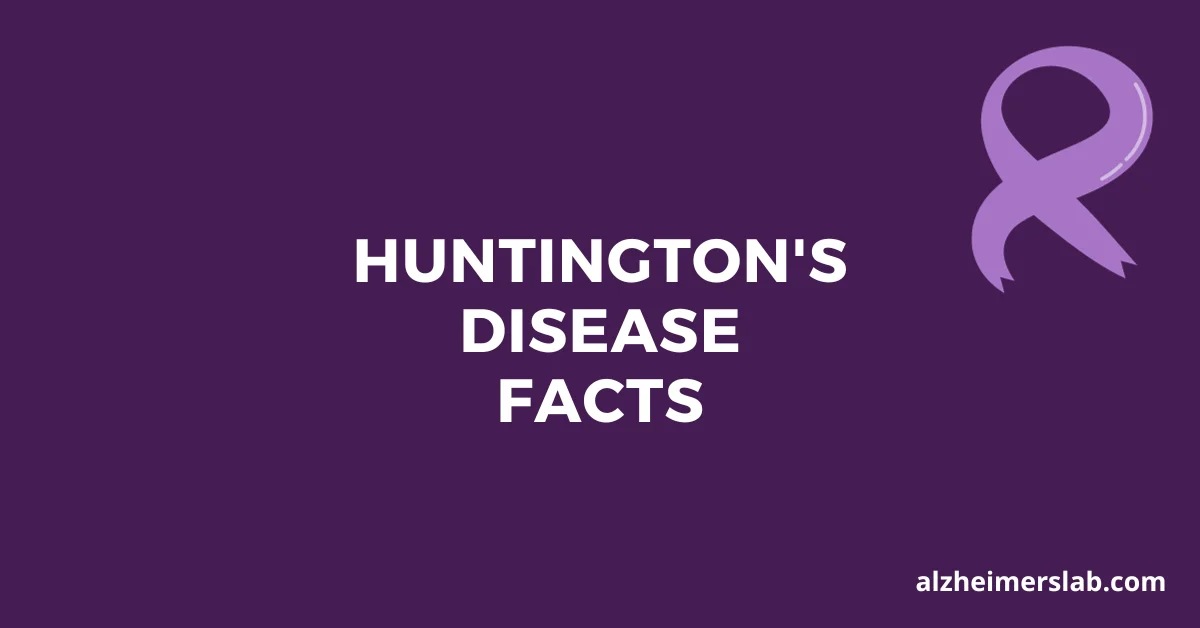5 Must-Know Huntington’s Disease Facts
This post gives you the facts you need to make important decisions as a Huntington’s disease patient or a caregiver.
Huntington’s disease is one of the rarest brain disorders (1 in 5000 people have Huntington’s disease in Scotland) where cells in a particular area of the brain slowly die. People have a lot of wrong assumptions about Huntington’s disease as its symptoms are quite similar to Alzheimer’s disease.
This is a form of dementia that tortures not only old and middle-aged people but also young adolescents(starting from age 13).
Two of the famous musicians— Woody Guthrie and Sophie Daumier— lost their lives in a battle with Huntington’s disease.
Let’s have a look at 5 Huntington’s disease facts.
1) More than $18 million has been committed to its research.
The Huntington’s Disease Society of America(HDSA) is a nonprofit organization working for people with Huntington’s disease by doing cutting-edge research in their 43 Centers of Excellence across the United States.
They also provide help in the form of health care to people suffering from Huntington’s disease.
HDSA has spent more than $18 million on research to find an effective treatment for reducing the effects of symptoms of Huntington’s disease.
They have made it possible for regular people to help the families of the deceased by donating money, vehicles, workspaces, and also by offering them much-needed employment opportunities.
This is one of the interesting Huntington’s disease facts that can open up new channels of information for you.
2) The child has a 50/50 risk of inheriting Huntington’s Disease from the deceased parent.
What are chromosomes?
Every single cell in our body has some instructions saved in it, these instructions are known as genes. These genes are encased inside long strands called chromosomes.
A human being has 46 chromosomes, and every 46 chromosomes are arranged into 23 pairs. The child inherits one copy of this pair from its mother and another copy from its father.
Gene mutation is the root cause of Huntington’s disease.
The instructions stored in the gene may sometimes be distorted or incomplete, this causes the gene to malfunction. If such a malfunctioned gene gets inherited by a child, he or she will show symptoms and will inherit the disease caused by such a malfunctioned gene.
How is Huntington’s disease inherited?
A child may inherit either one working copy of HTT gene(only from the healthy parent) or two copies of HTT genes(one faulty and one working— one form mother and another from father).
Mutation in one copy of the HTT gene (either in mother’s or father’s) is enough to genetically transmit the disease to their offspring, even if another copy is fully functional.
Since one of the copies could be mutated or faulty, the child will have a 50 percent chance of inheriting Huntington’s disease and the other 50 percent chance of being healthy without the disease.
3) Huntington’s Disease can be treated with proper nutrition.
Unfortunately, good nutrition does not help get rid of Huntington’s disease completely. It helps Huntington’s disease patients to cope and fight with the disease, and it does that by keeping them in the best possible physical and mental condition.
Huntington’s disease makes a person lose weight and crave more calories. Research done by Huntington’s Disease Society of America(HDSA) suggests that keeping body weight slightly higher than the ideal helps to control the disease.
Huntington’s disease patients in the early stages, do not face any problems swallowing the food. But as the disease starts to tighten the screws on its patient, having food can become difficult and the caregiver will be needed to help them make a choice on what to eat and what to avoid.
4) Huntington’s Disease can alter the sexual behavior of a person
Understanding the sexual behavior and needs of a person suffering from a brain disorder are the most challenging things medical professionals have to deal with. The patient’s family finds it uncomfortable to discuss it within themselves or with doctors and tries to avoid bringing up this topic. This is one of the most mind-opening of all the Huntington’s Disease facts we have covered in this post.
Reports suggest that a massive change in sexual behavior is expected in the patient just after the diagnosis of Huntington’s disease. Some lose interest in their sexual partners and some develop intense sexual drive. It is natural for a person to feel down after being diagnosed with such a horrible disease and finding out they only have a couple of decades left on this planet can make them feel purposeless.
But there is no rational reason for their indecent sexual behavior in public. Some have been reported to have a one-night stand with strangers, sudden peak interest in dating after being divorced for years, sexual assault on the medical staff, exposing their genitals in public, refusing to wear undergarments, etc. [1]
5) It forces young people to spend their remaining life in a nursing home.
Most people in nursing homes are in the later stage of their lives and are not surprised to find themselves there, but a person with juvenile Huntington’s disease is much younger and he/she has to take efforts to adapt to the environment.
A juvenile Huntington’s disease patient has to perform a lot of physical and mental exercises to keep themselves agile. Nursing homes provide Huntington’s disease patients with various recreational facilities which can be done even with speech impairment or some sort of physical disability.
Exercise equipment, reading rooms, massage parlors, music therapy, and a computer with an internet connection are some of the recreational facilities a nursing home provides for the well-being of a Huntington’s disease patient.
Conclusion
These are the most interesting facts we at Alzheimer’s lab have noticed recently in the world of Huntington’s disease research. You may also be interested in reading a post on the Best treatment options for Huntington’s Disease. What other facts have caught your attention? I’d love to hear about them in the comments!

